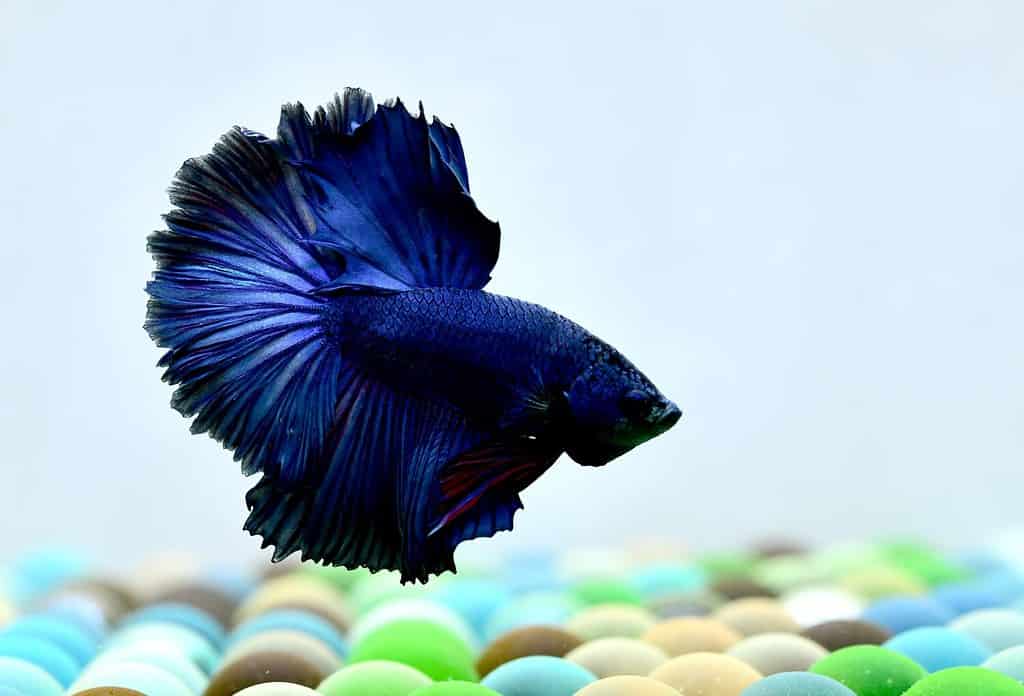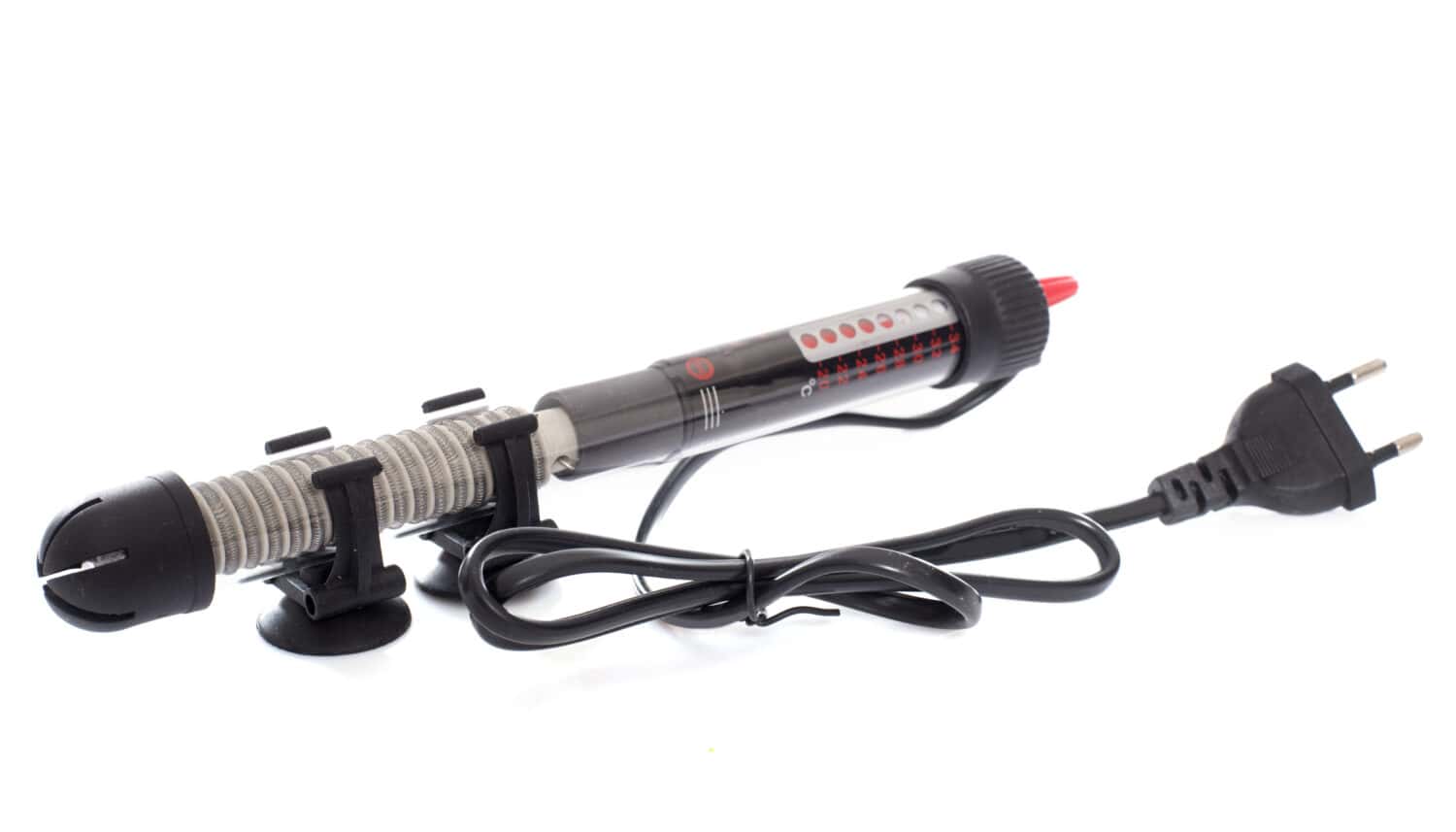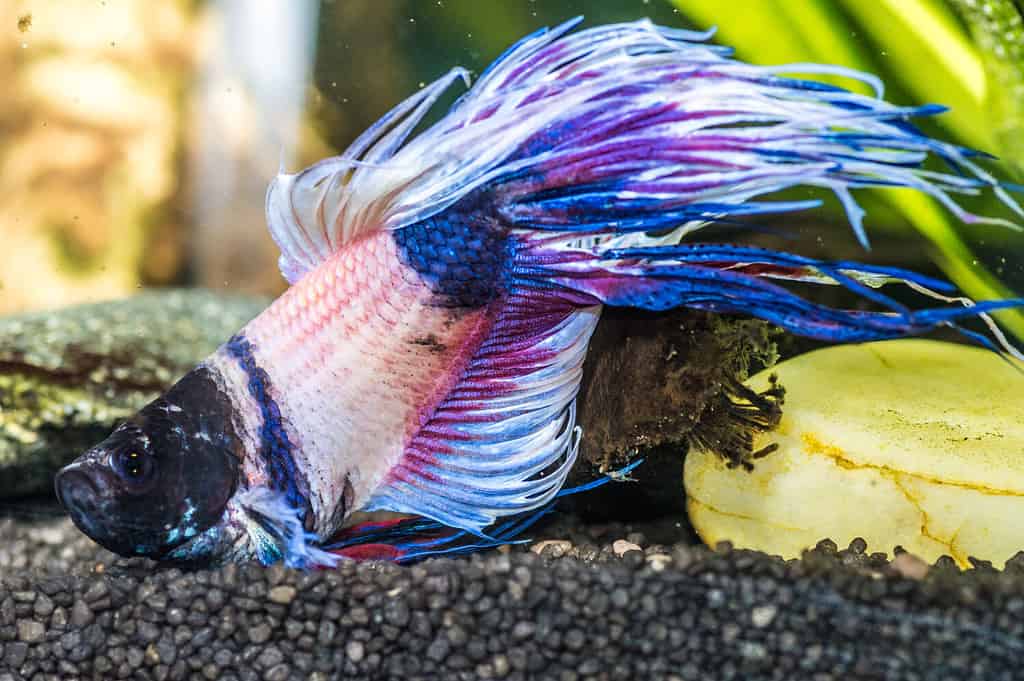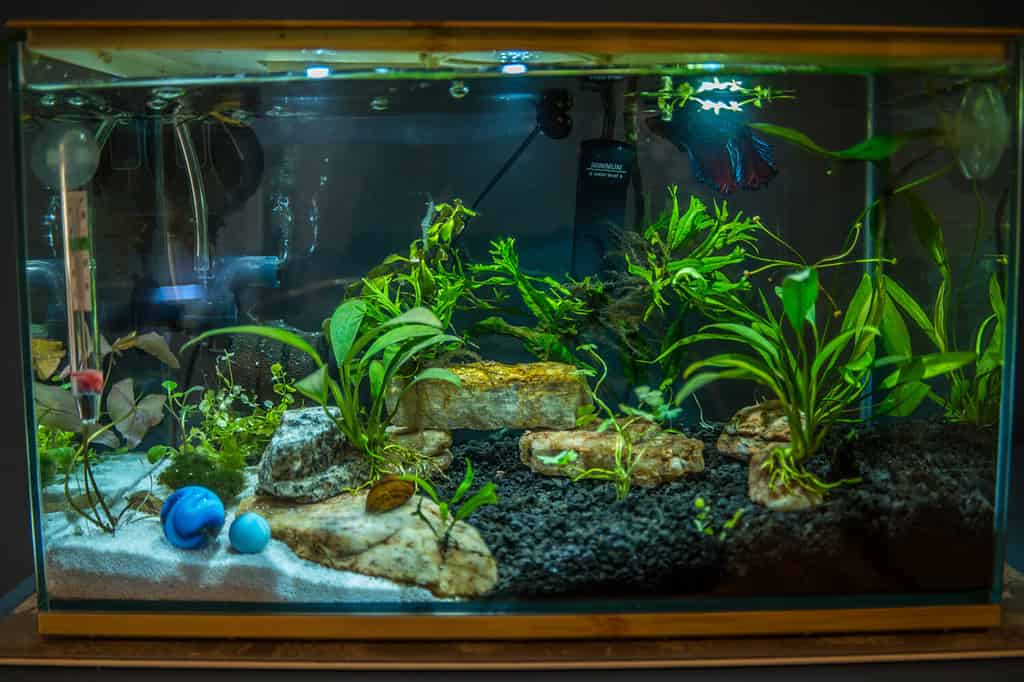The Ideal Water Temperature for Betta Fish and the 7 Best Ways to Achieve It
When caring for betta fish, little thought is usually given to their aquarium’s water temperature. Water temperature can be the defining factor that either allows your betta to thrive or become lethargic in even the most lavish aquariums.
An improper water temperature not only negatively affects your betta’s metabolic functions but may reduce their life expectancy too. That’s why betta fish keepers are urged to keep the water within an ideal temperature range and prevent any drastic fluctuations.
With this in mind, this article will discuss the ideal water temperature for bettas and how you can achieve it.
Key Points
- Bettas are tropical fish naturally found in warm freshwater habitats.
- Their ideal temperature range is between 75° to 80° Fahrenheit (23° to 26° Celsius).
- All betta fish need a heater in their aquarium even if the ambient temperature is warm.
- A submersible thermometer allows you to monitor the water temperature.
- Bettas rely on warm water for several essential metabolic functions.
Why Is Water Temperature Important for Betta Fish?

©bobbyphotos/Shutterstock.com
Water temperature is important for bettas because it affects many of their metabolic functions, such as digestion and respiration. Like most fish, bettas are ectothermic and regulate their body temperature through external heat sources. Bettas do not maintain a specific body temperature as it depends on their aquarium’s water.
They are considered tropical fish because they have adapted to living in warm water in the wild. Betta fish originate from Southeast Asian countries with tropical climates like Thailand. They inhabit warm freshwater streams, ponds, and rice paddies with a temperature range of 65° to 90° Fahrenheit (18° to 32° Celsius). Replicating the water temperatures experienced in the wild allows your betta fish to thrive rather than survive.
What Is The Ideal Water Temperature for Betta Fish?
An ideal temperature range is not about what temperatures bettas can tolerate but which ones they are most comfortable at. When kept within an ideal temperature range, your betta’s metabolism will function at its best. This allows your betta to be active, maintain a healthy appetite, and functioning immune system.
Betta fish should have a relatively warm water temperature at all times. The water temperature should be maintained within an ideal range between 75° to 80° Fahrenheit. However, betta fish can tolerate a wider variety of temperatures outside of their ideal range. The warmest temperature that bettas are comfortable at is around the 90° Fahrenheit mark. Whereas temperatures below 65° Fahrenheit are usually too cold.
If the water temperature is too cold, your betta might appear sluggish and lose their appetite. This is because their metabolism is slower in cooler temperatures compared to warmer ones. However, betta fish can also struggle to thrive in water that is too warm and may have trouble respiring normally. Keep in mind that warmer water naturally holds less oxygen. Although bettas can respire in warm water better than most cold-water fish, they still need oxygen to survive.
7 Ways To Achieve an Ideal Water Temperature for Betta Fish
1. Use an Aquarium Heater

©cynoclub/Shutterstock.com
The easiest way to keep your bettas water at an ideal temperature is by using an aquarium heater. Since bettas are tropical fish, they should have a heater in their aquarium anyway. The aquarium heater should be submersed and set at a temperature between 75° to 80° Fahrenheit. A heater should still be used even if the ambient temperature is warm, as heaters keep the water temperature stable. It can run constantly and does not need to be switched off at night.
If the water is already at an ideal temperature, the heater will automatically switch off. When the temperature starts to drop, the heater will switch back on and heat the water until the desired temperature is reached again.
If you have your betta in a smaller tank around 5 to 10 gallons in size, a 25-to-50-watt heater will be sufficient. The filter does not need to be too large or fancy, just strong enough to maintain an ideal water temperature without harming your betta.
2. Keep The Aquarium Out Of Direct Sunlight
Direct sunlight can heat your bettas aquarium to an uncomfortable and potentially dangerous temperature. Furthermore, keeping the aquarium in direct sunlight can cause stressful temperature fluctuations that should be avoided. You ideally want to keep their aquarium in a shaded area or near a window that has no direct sunlight. Sunlight will not be a good substitute for a safe and effective aquarium heater, as the temperatures from it can be unpredictable.
3. Keep The Aquarium Insulated

©Wirestock Creators/Shutterstock.com
If you find that your bettas aquarium cools down too quickly, then you might need to find ways to insulate it. This doesn’t mean you should wrap blankets around the tank, as an enclosed aquarium hood usually does the trick. The hood or lid will help prevent heat from escaping the water and reduce the number of times the heater switches on.
Plus, having a covering over the aquariums helps protect your betta from jumping out, which can be fatal. Aquarium coverings are especially beneficial during the wintertime when the ambient room temperature might cool down the water quicker than the heater can handle.
4. Use a Thermometer
It is always a good idea to keep a thermometer in your bettas aquarium to measure the temperature. The thermometer does not need to be expensive, but at least accurate and safe. A submersible aquarium thermometer allows you to monitor the water temperature and ensure that it is kept within the ideal range. When the thermometer indicates that the water is too warm or cold, you can make the necessary adjustments to the heater.
5. Avoid Housing Them in Small Bowls or Vases

©Sandra Burm/Shutterstock.com
Housing bettas in small bowls and vases is not only an ethical issue but can affect the water temperature. Small aquaria naturally hold less water which can rapidly cool down or heat up. These temperature fluctuations can be incredibly stressful for bettas who require a stable water temperature. Although a gradual temperature drop by one or two degrees is not concerning, constant fluctuations are.
A fish tank over the 5-gallon recommended minimum not only provides your betta with more space to swim, but the temperature will be easier to maintain. If your betta is kept in only 1 to 3 gallons of water, the temperature will fluctuate much easier than in a large tank which takes longer to be affected. Furthermore, a larger water volume provides more room for error.
6. Use a Filter To Circulate The Warm Water
A filter keeps bettas water clean and fresh while helping to prevent hot spots in the water. Hot spots can happen when a heated aquarium has water with little to no flow. The water surrounding the heater can get warmer than other parts of the aquarium since the filter is not circulating the heated water.
This can make it difficult to maintain an ideal water temperature for your betta. The heater may switch off too early as it senses that the water is already heated, even though it is only in one spot. Try positioning the heater with good water flow to ensure that the heated water circulates around the aquarium.
7. Run a Thermostat
Heater malfunctions can be dangerous for bettas and potentially kill them. Even the highest quality aquarium heater may not be resistant to malfunctioning. When heaters malfunction, they may either stop working altogether or not switch off even if the desired temperature has already been reached.
The result could be a chilled and sick betta fish or one that has died from dangerously hot temperatures. Although most aquarium heaters switch on and off when necessary because of a built-in thermostat, having an external one as a backup is recommended. An external or controllable thermostat helps to regulate the water temperature to keep your betta safe.
The thermostat will be helpful if the heater doesn’t switch off by itself and prevents it from cooking your betta fish.
In Conclusion
Maintaining an ideal water temperature for your betta fish is essential for their health and longevity. Bettas are tropical fish that require a heater regardless of the ambient room temperature. Although a warm water temperature between 75° to 80° Fahrenheit is ideal for these tropical fish, no constant temperature fluctuations are just as important. Aside from equipping your bettas aquarium with a heater, you should always run a thermostat and thermometer alongside it.









